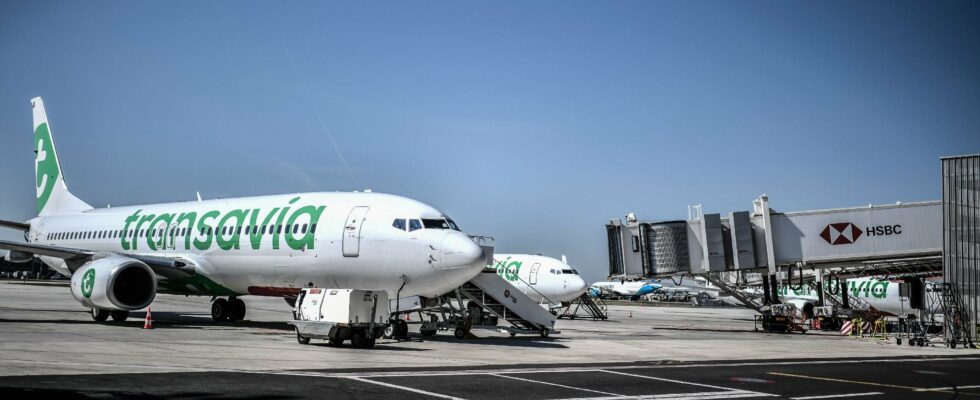New record. Nearly 5 billion people are expected to fly this year, according to the International Air Transport Association. Good news for the economy but bad for the climate: while planes emit 80 times more CO2 than trains, this mode of transport continues to benefit from advantageous sales conditions. “We are not yet paying the true price of tickets, the one which would take into account all the ‘negative externalities’ of this mode of transport”, estimates Arnaud Aymé, transport manager at Sia Partner.
To support his demonstration, the expert dissects the price of a Paris-Nice flight operated by Air France. Of the total ticket price, around 130 euros, 25% corresponds to the cost of fuel, or 27 euros. Added to this are taxes, such as the solidarity tax on plane tickets (TSBA), which in France includes an eco-contribution partly financing railway installations, but also a tax on noise pollution (of 0.40 euros ), and several charges for airports or air routes. In total, according to Air France, 40% of the ticket price corresponds to various taxes and airport charges. But not all of them benefit the environment, and this share drops much more significantly on an international flight. For a Paris-New York flight for example, only 17% of the ticket price (740 euros on average) corresponds to these taxes.
On international flights, this environmental contribution therefore falls to zero. “If for European journeys, air transport pays the carbon price, this is not the case for long-haul flights”, recognizes Laurent Timsit, the general delegate of the National Federation of Aviation and its Trades (Fnam), which represents companies in the sector.
A tax on kerosene?
Unlike fuels used for rolling vehicles (trucks, cars, etc.), kerosene used by planes is not taxed. A pitfall decried by NGOs: “The current prices of plane tickets are artificially low, because they benefit from numerous tax exemptions which do not reflect the negative externalities of this mode of transport on the climate or atmospheric pollution for example So we are not paying the real price for the service provided by aviation,” explains Jérôme du Boucher, aviation manager at the NGO Transport & Environment.
Long requested by environmentalists and supporters of a transformation of the aviation sector, a tax on kerosene is currently being discussed within the European Union, without however obtaining a consensus. Representatives of the sector cite international competition as an obstacle, as well as the difficulty of imposing global carbon taxation. “If a tax on kerosene only applied in Europe, the companies which now make a stopover on the continent will turn away from it to refuel elsewhere,” says Arnaud Aymé.
Reduce demand
Already noticeable since the Covid crisis, the increase in ticket prices is expected to continue in the years to come. Two main factors are currently at work: on the one hand, companies must gradually incorporate more and more biofuels into the fuel tanks of their aircraft by 2030. These alternative fuels, produced based on hydrogen and carbon, but also biomass, make it possible, once mixed with kerosene, to reduce CO2 emissions from engines. European regulations require the integration of 2% “sustainable” fuel by 2025 and at least 6% by 2030. More expensive to produce, these new fuels should lead to a slight increase in ticket prices.
From 2026, European airlines will also have to integrate the costs linked to the evolution of the European carbon quota market. While until now they had free allowances, these will have to be purchased on the market to continue to be authorized to emit CO2. According to Air France, by 2030, these different measures should slightly increase the bill: around 80 euros for a medium-haul round trip, and 140 euros for a long-haul round trip, such as a Nice- Singapore.
Enough to reduce the volume of air traffic? “If we put in place an increase in the price of kerosene, the price of tickets will inevitably follow, and we will have fewer travelers,” assures Laurent Timsit. Fnam thus estimates that these changes in practices – such as the incorporation of biofuels or the increase in prices linked to the evolution of the carbon market – are compatible with growth in the air sector of just over 1% per year. by 2050. This is one point less than what a world without ecological transition would allow. But this should not be enough to resolve the growing problem of increasing CO2 emissions from the sector, several experts warn. The subject has not finished creating turbulence.
.
